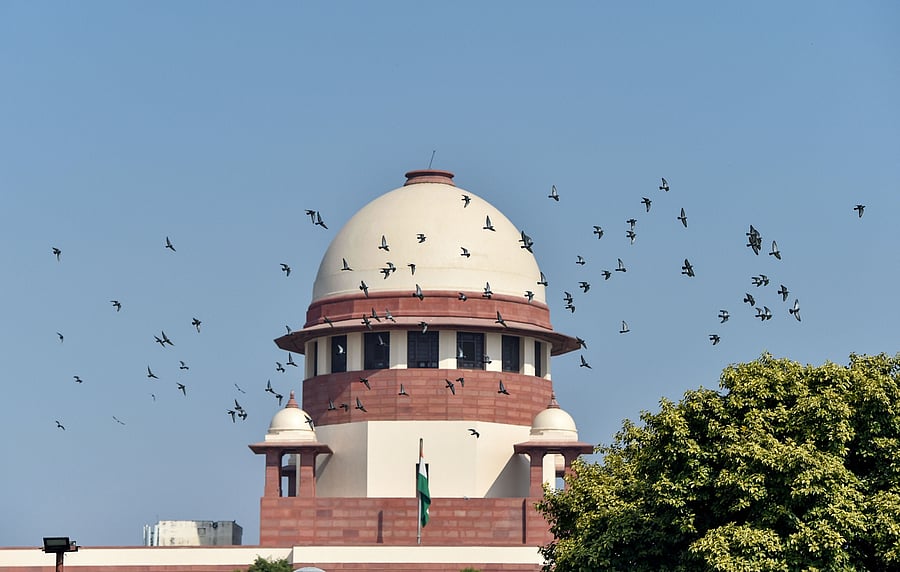
In the face of unprecedented global crisis in the form of COVID-19 pandemic, Supreme Court has quickly resorted to virtual court system to ensure that it continued to take up urgent matters seeking justice.
Instead of regular hearings system, the top court resorted to video conferencing with a view to adhere to social distancing norm to check spread of infection.
Maintaining that justice can't be spoon-fed, an official note stated justice delivery, even at the door-steps, required the stakeholders of the ecosystem to diligently discharge their role and duties, prescribed and required in the scheme of things.
In 22 days of hearing, as many as 116 benches assembled to take up 538 matters in additional to 297 connected matters in the month of April in the Supreme Court, according to official data released on May 1. In the period, judgement has been delivered in 57 matters. Besides, as many as 49 special leave petitions, 92 writ petitions, 138 review petitions and 58 pleas for interim relief were taken up.
"This statistics revealed that despite challenging circumstances the Supreme Court has ensured dispensation of justice in cases of urgency with highest number of hearings undertaken to alternative mode best suiting to the circumstances," the official note said.
It was also pointed out that the information available on court and other judicial websites indicated that in nations hit hard by the Covid-19 pandemic like the USA, the UK, EU, France, Italy, Germany, China, Canada, Australia, Singapore etc, the judicial organs of the State carrying out the administration of justice were mostly relying on virtual court methodologies and online case-management in place in their respective jurisdictions.
It also called upon all stakeholders to accept the virtual court system for a fair adjudicatory process.
"The advantages of the virtual court system, especially in terms of time, energy and money saved by the litigants and counsels in ensuring their presence before a court are innumerable and could be game-changers too," the note stated.
It also asserted that under the current pandemic, the virtual courts system could not be said to be negating the principles of fairness that were sacrosanct to the administration of justice nor was it failing to adhere to requirements of an ‘open court’ system.
In the regular working of the Supreme Court, just before the pandemic struck, only the parties certified by the Advocate-on-Record and advocates were being permitted to be present in the Open Court.
Currently, under the virtual court system, the litigants indicated by the Advocate-on-Record, Advocate-on-Record himself and the senior counsel are provided with the video conferencing links to join from remote points. They are able to hear, see and respond to the other party and the bench simultaneously, during the proceedings of the virtual court, it said.
"Notwithstanding the resistance and technological challenges faced by the virtual court system today, at its stage of dormancy, efforts should continue to strengthen its roots and its various delivery mechanism in manner that it may also throw up answer to several ills that have plagued the physical or the traditional court system over the past few centuries," it said.

